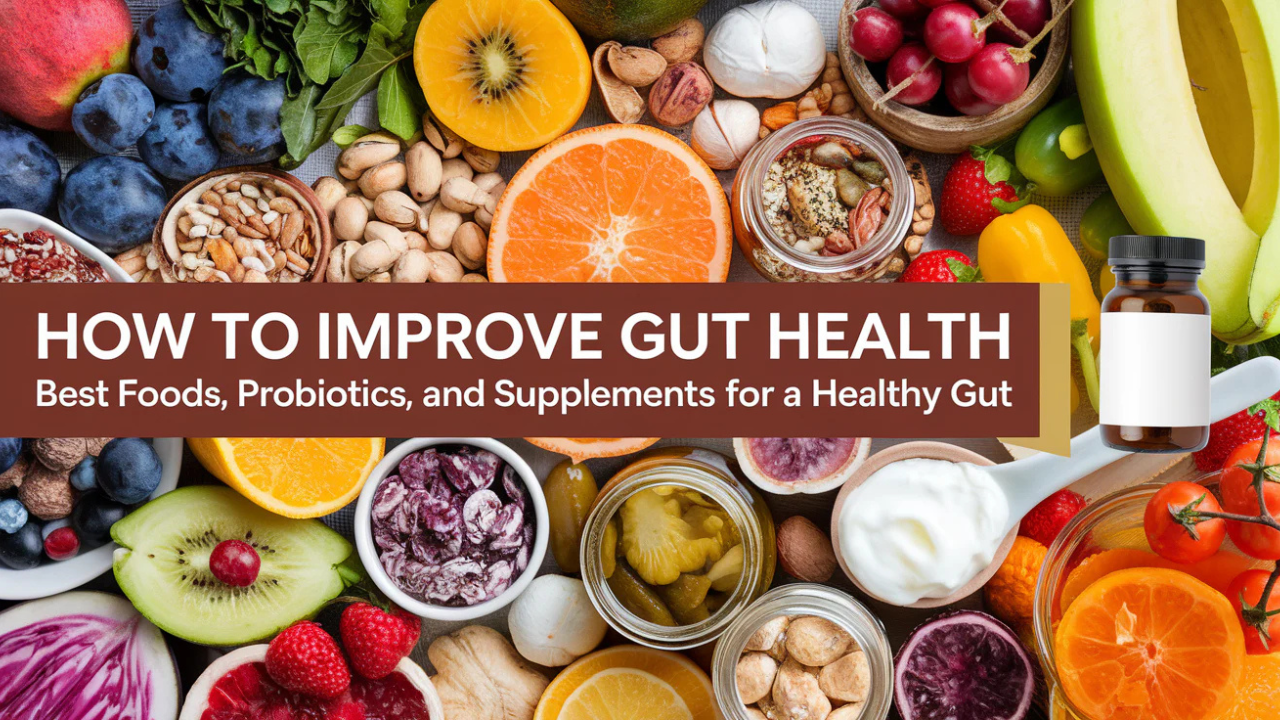Probiotics are live bacteria and yeasts that should have a proper beneficial health effect. They are present in the nutritious supplements and different kinds of food.
These probiotic foods or supplements would potentially have an additional impact on the composition of the gut microbiome, which refers to the collection of microorganisms living in the gut. The diversity of organisms in the microbiome then might have different effects-for better or worse-on the state of health of an individual.”
Importance of probiotics for gut health
Your gut, or more commonly referred to as your microbiome, is are class of bacteria that are essential to the functioning of your body. Most of the DNA of your body is actually possessed by these gut bugs, so technically, you are more a bacterium than a human. The gut bugs may well be the ones keeping you alive, combating your enemies, breaking down food and releasing energy, synthesizing vitamins, and even modulating your mind.
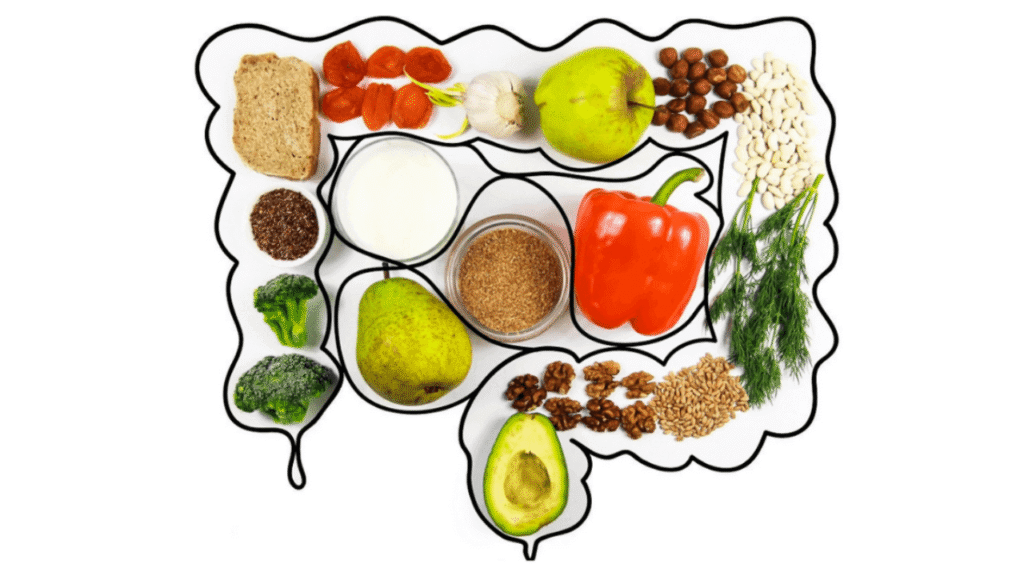
An alteration in the ratio of good versus bad bacteria creates a slew of problems, which may include:
- Constipation
- Excess internal gas
- Chronic diarrhea
- Bad breath
- Bloating and Cramping
- Development of food intolerance
A suppression in the immune system, which makes the host susceptible to falling sick. Gut imbalance can also be upset by sugar, alcohol, antibiotics, lack of exercise, smoking, as well as lack of sleep, among a host of other factors.
How do we fix the gut flora? Enter probiotics.
Probiotics are organisms that, when given in sufficient amounts, confer a health benefit on the host. There are many different kinds, and it would be good to have a variety of them. They help maintain a healthy digestive system and a healthy immune system.
Top Natural Probiotics to Include in the Diet
If you want to nurture as many good gut bacteria as possible, here are the best food sources to find them in:
It is hugely popular today and rather easy to find. It is good to start with about 4 ounces of Kombucha a day, which one can drink empty stomach in the morning or at any time.
1. Kefir
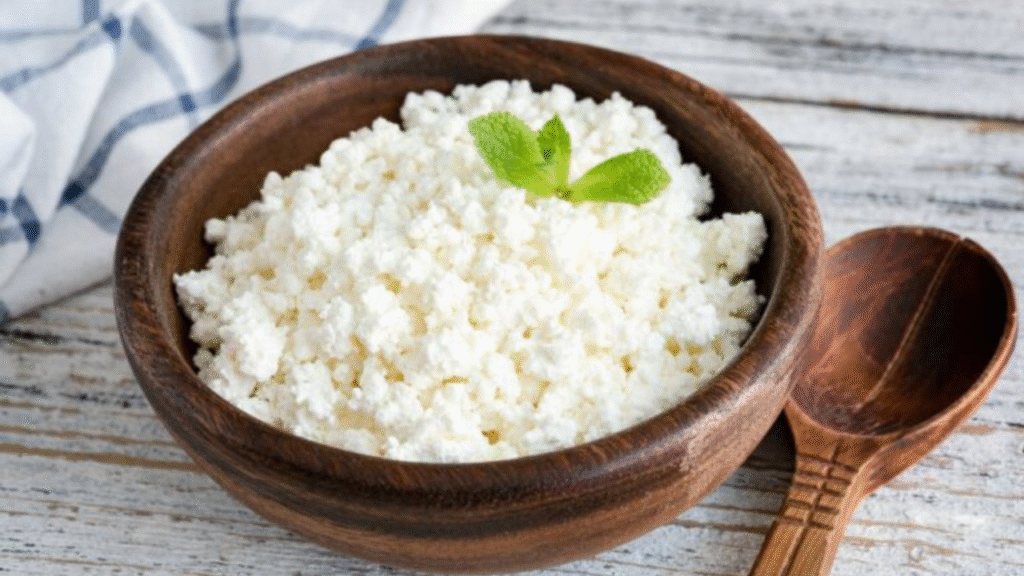
Similar to Kombucha, Kefir is a fermented drink, only this time it is milk-based. It does sound a bit weird, but it’s incredibly healthy. Kefir grains are used in making this drink. These grains contain strains of bacteria that impart probiotic properties to the milk and offer a slight fizz. In addition, it contains a whole bunch of nutrients and proteins, and it seems to be a better source of probiotics than yogurt.
You can marinate with it, use it in salads, or even bake with it.
2. Pickles
Yep, the Snooki favorite! Cucumbers are pickled in salt and water and left under fermentation, courtesy of their own lactic acid bacteria. While vinegar types do not contain probiotics, traditional pickles will. They yield vitamin K and are low-calorie-there’s just no accounting for the deep-fried kinds!
3. Miso
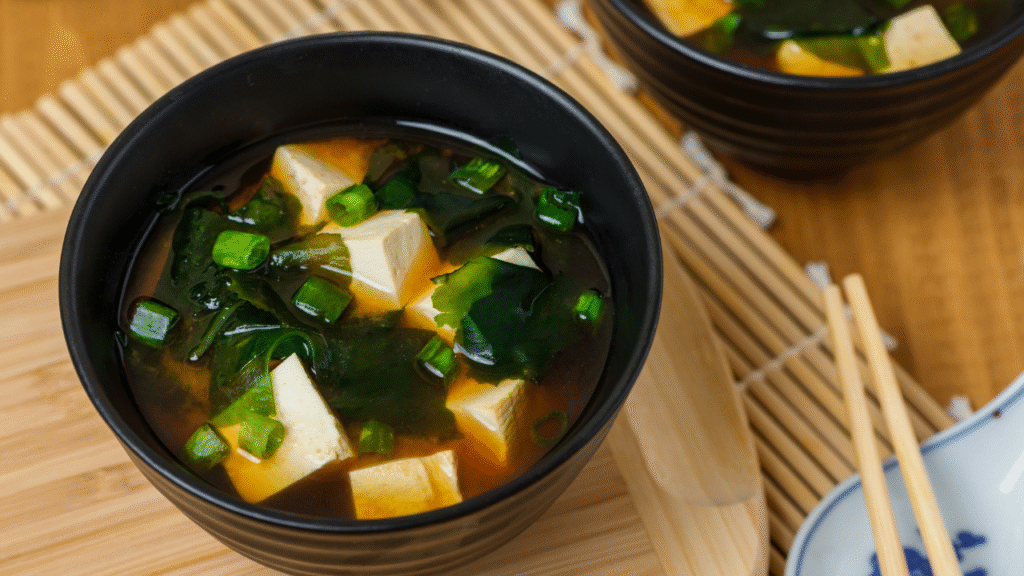
This is a Japanese seasoning made by fermenting soybeans with salt and a fungus called koji into a paste that is commonly used in soups. In addition to probiotics, miso is also a good source of protein, fiber, vitamins, minerals, and phytonutrients.
4. Yogurt
This is probably the most classic go-to food for probiotics, but you have to check a couple of things first.
Mostly anything bought from the store will pass for some desert more than a food fit for health, especially those ‘fruit-on-the-bottom’ types. Any of these fancily packaged yogurts has so much sugar that you may as well be going back a few steps on the health path.
Preferably, this should be natural and unflavored, and boldly tell you what it contains on the package. If there are no clear mentions of the nutrients and ingredients in the package, most of the beneficial bacteria likely got killed off during processing.
5. Sauerkraut
Hey! Don’t wait for Oktoberfest and a giant beer stein the size of a Buick! Sauerkraut is good at any time! Just like pickles, sauerkraut is made from chopped cabbage, fermented with lactic acid and bacteria. It is easy to make and can last for months in your fridge.
Along with probiotics, sauerkraut contains vitamin C, vitamin B, and antioxidants. It should be easy to ladle on those sausages or hot dogs, serve as a side dish, in sandwiches, and even into stews. (And, no, a hot dog is NOT a sandwich.)
6. Kimchi
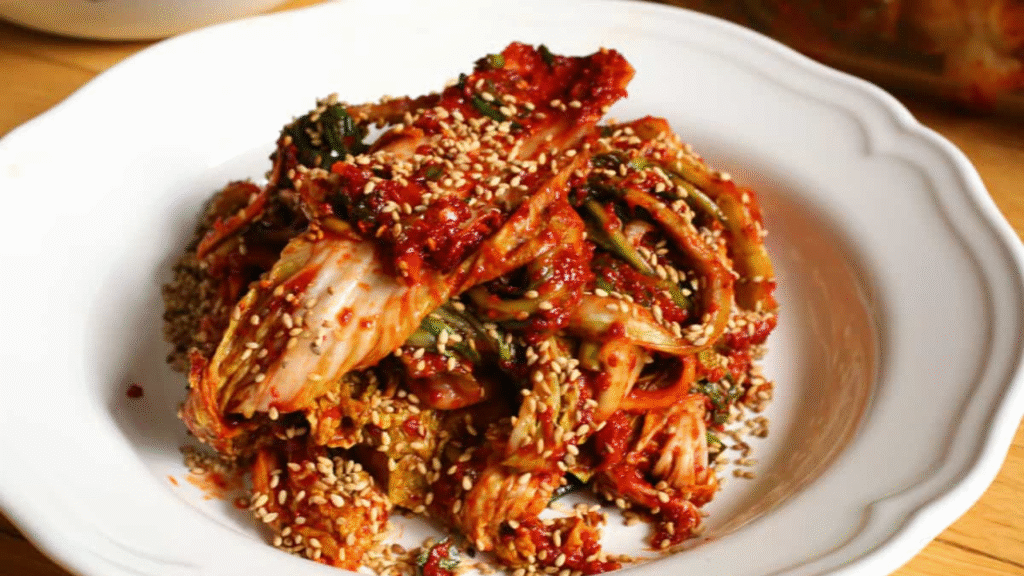
Kimchi is a kind of Korean sauerkraut. It is made from cabbage, but other vegetables may be included, and is seasoned with garlic, crushed red chili flakes, ginger, salt, etc. The lactic acid bacteria found in kimchi are excellent for digestion, and it is rich in vitamins, minerals, and iron.
7. Dark chocolate
Yes, and dark chocolate is indeed a source of probiotics. Dark chocolate also contains fibers that your gut bacteria could break down and ferment, along with providing anti-inflammatory effects beneficial for your health.
So, you should be consuming dark chocolate with at least 70% cacao and not a Toblerone the size of your head. One or two squares a day could bring you great health benefits.
8. Green Olives
Saltwater-brined olives undergo natural fermentation, and olives have a natural content of lactic acid bacteria, which provides excellent probiotic qualities. There are two types of live cultures in olives, which counteract bloating and help irritable bowel syndrome patients. (And, no, you don’t count it if you get your olive content from happy hour martinis!)
9. Tempeh
Tempeh is a fermented soy product that is made with a yeast starter, which imparts more of that meaty, tender bite to it.
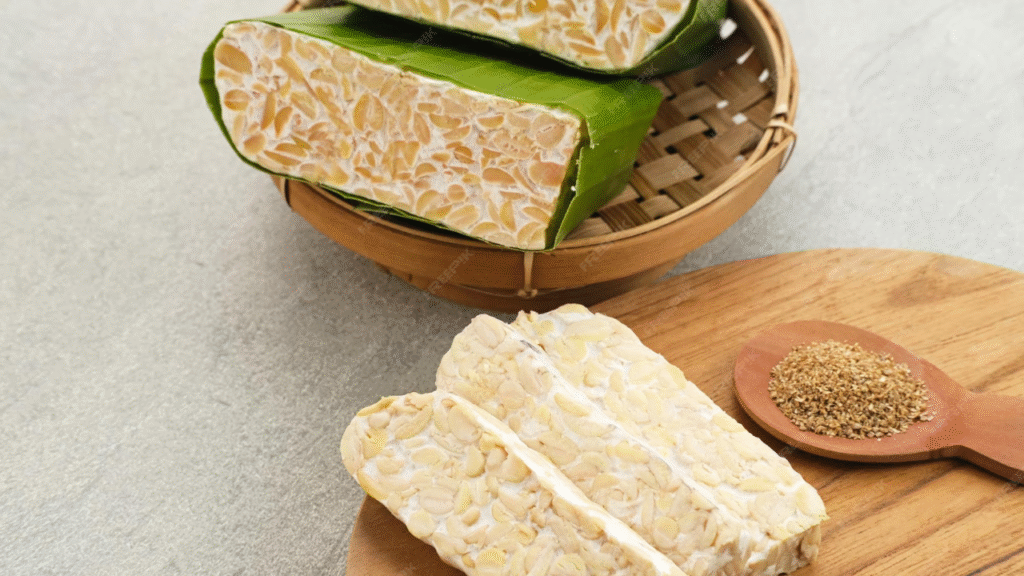
Hence, you will find its application in vegan meat and bacon alternatives. Tempeh is an excellent source of probiotics and so versatile in use; it is actually also a high-protein food. In fact, 16 grams of protein are provided in 3 ounces.
11. Buttermilk
Fermented milk is what we call buttermilk. This stems from the origin of buttermilk-in the past, buttermilk was the liquid remaining after churning butter from cream. Present-day buttermilk comes from the culturing of lactic acid in milk.
Studies show that buttermilk is beneficial to health and is linked to the decreased risk of cancer, namely breast cancer and probably colon cancer.3
12. Acidophilus Milk
Another fermented milk, acidophilus milk is obtained through the fermentation of cow’s milk with Lactobacillus acidophilus. This probiotic strain is implicated in many health benefits, ranging from reduced levels of cholesterol to better gut health, and boosts immunity.
13 . Fermented Fish
Utonga-kupsu, Hentak, and Ngari are traditional fermented fish consumed by the Manipuri people residing in the North-Eastern part of India. This dish can be found in some supermarkets, but commonly in fish markets or stores specializing in healthy food.

Fermented fish have also been investigated for their inherent antioxidant and antimicrobial properties.
14. Cottage Cheese
Regularly stocked in the grocery store dairy section, cottage cheese may or may not have probiotics in it.
When shopping, look for brands that include probiotics in the label. If you buy a probiotic variety, you will not only get the health effects of probiotics, but also good protein and calcium as well.
15. Apple Cider Vinegar
Like apple cider vinegar, it is one of the most easily available foods that may be health-promotive. For probiotic benefits, however, it should be an unpasteurized brand with the “mother,” which is the live culture of the fermenting organisms.
Apart from providing probiotics, apple cider vinegar is also claimed to control blood sugars, aid in fat loss, and provide anti-microbial benefits.
16. Red Onions
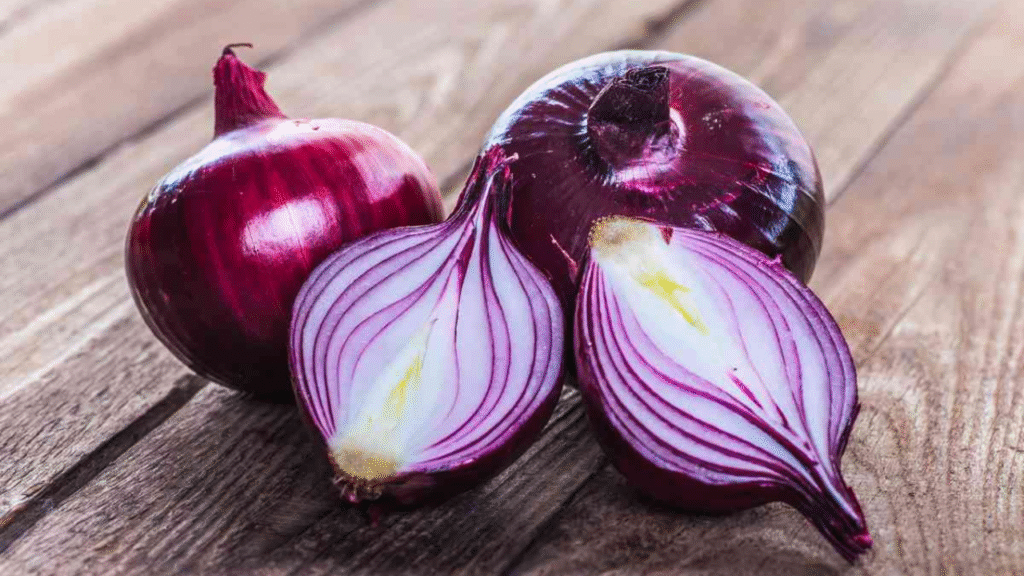
For the health-conscious consumer searching for probiotic-rich pickles, finding the pickled and fermented variety is the best bet, not the tin type. Nevertheless, onions, on their own, are always an amazing addition to any diet. They bring along some great antioxidants to minimize excessive damage to cells, benefiting from relieving inflammation as well.
17. Beets, Pickled
You can buy probiotic pickled beets in many local markets or just whip them up in your kitchen. Grab something fermented from your local store to get those probiotic benefits. No cans or tins, and watch the salt content if you can: a very good example of good bacteria.
These could be made with fast Lactobacillus plantarum, ginger, garlic, or simply with salt.
18. Cucumbers, Pickled
Although preferred, pickles, synonymous with pickled cucumbers, are featured on supermarket shelves and work perfectly with a burger or alone. The important thing is to ensure the pickles are the fermented kind since they can be true probiotics. Stay away from canned, pickled, or vinegar cucumbers.
Making pickled cucumbers at home is one of the easiest ways when using a jar and some cucumber slices in salt and water. The cucumbers may have some antibacterial effects similar to those of any other pickled vegetable. Because pathogens can enter the intestines, they will reduce inflammation in the intestines when fermented.
19. Cereals
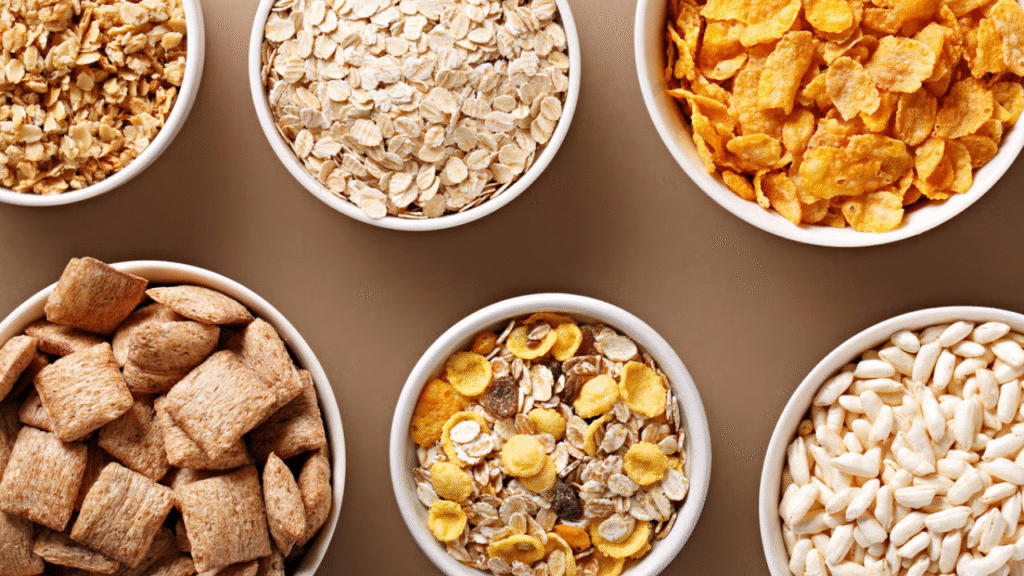
Some cereals contain probiotics. For instance, one should look for ingredients like inulin, palm oil, and Bacillus coagulans GBI-30 6086 on the cereal box.
One must do well to read the cereal pack quite well, as food companies are notorious for attempting to “pad” probiotic foods with little-known bacteria that were specifically indicated.
20. Cheese
Some probiotics are found in certain hard cheeses such as Swiss, provolone, Gouda, cheddar, Edam, and Gruyère.
Basically, probiotics will come in cheeses that are aged but have not been heated further. Most times, that is not noticeable on the product packaging, so you would have to inquire with the cheesemonger whenever wanting cheeses with probiotics.18
21. Probiotic Drinks
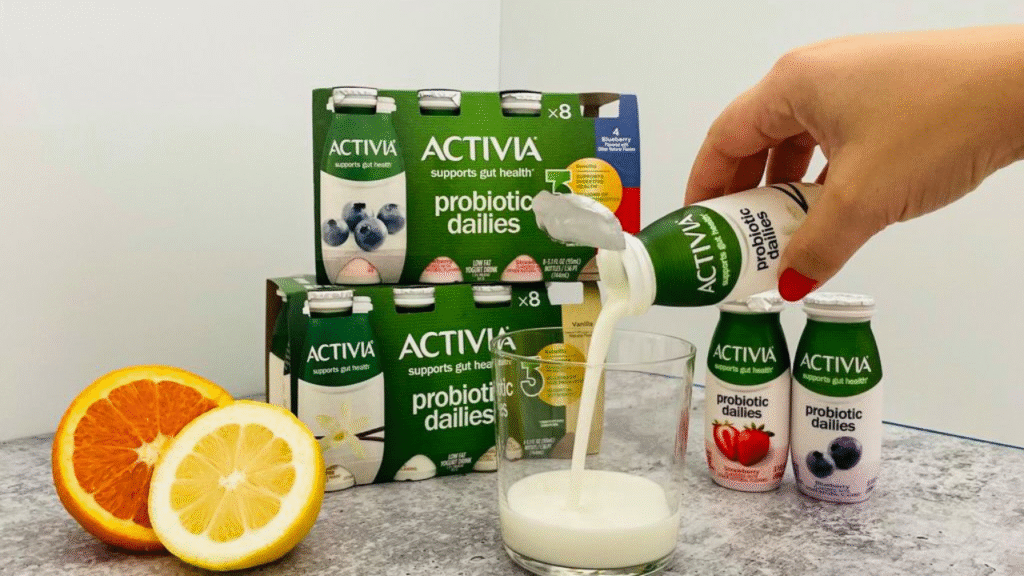
Probiotic drinks include kombucha (mentioned before) and kefir. There are also those known as “probiotic drinks” that are manufactured more rarely. Activia also offers a probiotic yogurt drink, mainly found in most grocery aisles.
So please ensure that no saturated fats and added sugars are creeping in when searching for those probiotic-benefit drinks.
Conclusion:
The fermentation process actually blesses some foods with a mix of living, valuable bacteria, along with yeasts. Different types and amounts of probiotics are usually found in fermented foods. This usually necessitates reading food labels to tell if such foods contain probiotics.
Probiotic foods are gradually incorporated into the diet to avoid the digestive symptoms that otherwise may result from a sudden massive intake of probiotics.
FAQs:
What are natural probiotics?
Natural probiotics are live microorganisms found in foods like yogurt, kefir, sauerkraut, and kimchi that promote healthy gut balance.
How do probiotics improve gut health?
Probiotics restore healthy gut bacteria, aid digestion, strengthen immunity, reduce bloating, and support overall digestive and metabolic wellness naturally.
Which foods are the best natural probiotics?
Fermented foods like yogurt, miso, kombucha, sauerkraut, kimchi, and kefir are excellent sources of natural probiotics for gut health.
Can natural probiotics help with digestion issues?
Yes, probiotics help reduce bloating, constipation, and diarrhea by balancing gut bacteria and promoting smooth, healthy digestive functioning daily.
How long does it take probiotics to work?
Probiotic benefits vary, but noticeable improvements in digestion, energy, and gut balance often appear within two to four weeks.
Hi, I’m veda, a professional health content writer and passionate wellness advocate at HealthTipsIndia.com
. With years of experience in writing evidence-based, reader-friendly articles, I specialize in creating content that empowers people to live healthier, more balanced lives. Whether it’s nutrition, fitness, natural remedies, or preventive healthcare, I translate complex medical concepts into actionable tips tailored for the Indian lifestyle. My goal? To make trustworthy health information accessible to everyone—one article at a time.

